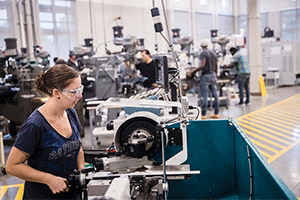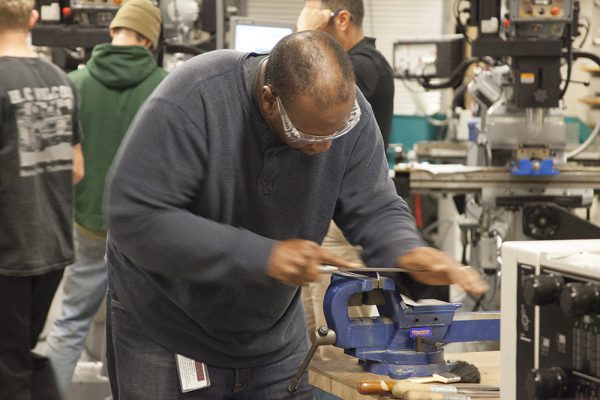Community College Manufacturing Program Continues to Expand
/Tunxis Community College in Farmington is establishing Connecticut’s eighth advanced manufacturing education programme as employers struggle to keep up with demand for workers.
Brian J. Fries, president of Atlantic Precision Spring Inc., a Bristol-based metal-stamping manufacturer, said the college training program, set to launch in August, can’t come soon enough.
“The last thing I need is to have jobs and not have personnel,” he said following a meeting of employers and state education officials at Tunxis in Farmington.
Jim Lombella, president of Asnuntuck and Tunxis community colleges, said he receives phone calls daily “from employers looking for skilled workers.”
Connecticut is benefiting from rising demand for commercial and military jet engines, submarines and helicopters. However, thousands of manufacturers in the state are scrambling to hire qualified workers to keep up with production and fill jobs left vacant by retiring baby boomers.
More than 13,600 manufacturing workers — machinists, welders, tool and die makers and others — are needed, according to a survey by the Connecticut Business & Industry Association.
 The state currently operates advanced manufacturing programs at Asnuntuck, Housatonic, Manchester, Middlesex, Naugatuck Valley, Quinnebaug Valley and Three Rivers community colleges.
The state currently operates advanced manufacturing programs at Asnuntuck, Housatonic, Manchester, Middlesex, Naugatuck Valley, Quinnebaug Valley and Three Rivers community colleges.
“Now we have an opportunity to build on that at Tunxis,” Mark Ojakian, president of Connecticut State Colleges and Universities, said at the meeting.
Many central Connecticut manufacturing industries, including automotive, aerospace, defense and medical equipment, are expected to also benefit. The Tunxis program is close to what Ojakian called a “ripe market for manufacturing” in Bristol, Hartford, New Britain, Newington, Plymouth and Southington.
It will offer associate degrees in manufacturing and machine technology. It also will offer certificates in machine technology and manufacturing electro-mechanical maintenance technology.
The program, accommodating 30 to 50 students, will provide course work that meets the needs of manufacturers and avoids a “disconnect between employers in the region and programs on campus,” Ojakian said.
Citing the state’s fiscal troubles, he asked business representatives to lobby the General Assembly for funding for the advanced manufacturing centers.
“We cannot scale this without additional support,” he said.
Lombella said the initial cost will be $700,000 for laboratory equipment, renovation and other requirements. But, he said, there will be a funding gap between the $16,000 it costs the college to educate each student and tuition of $8,500.
___________________
This article first appeared in The Gulf Today, a 36-page English-language daily newspaper based in the United Arab Emirates.






























